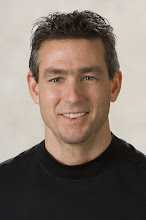Exercise regularly, and the need for hydrating increases even more!
Water is also the body's primary means of cleansing itself
 by flushing toxins out the back (bottom) door. Further, proper hydration improves digestive efficiency, reduces blood pressure, and improves the appearance of skin, nails, and hair. Drinking plenty of water helps you digest food better, increases muscle and joint flexibility, and helps keep your breath fresh!
by flushing toxins out the back (bottom) door. Further, proper hydration improves digestive efficiency, reduces blood pressure, and improves the appearance of skin, nails, and hair. Drinking plenty of water helps you digest food better, increases muscle and joint flexibility, and helps keep your breath fresh!With all of these things dependent upon proper hydration levels, it's a wonder that any of us become dehydrated at all! But we do, and it seems to occur rather easily. A good rule of thumb for monitoring your hydration levels is the color of your urine. Unless you've just taken a loaded multivitamin, you should be generally passing clear fluid when you urinate. The darker it is, the more dehydrated you probably are!
Got a slight headache? Maybe you're dehydrated.
We've all heard the advise to drink 8 glasses of water each day. You know, that's a lot of water! And it actually takes conscious effort to consume that much water positioned butt down at your desk. The easiest way to encourage additional fluids intake is exercise! More on that below, but here are a few basic tips for proper daily hydration:
- Develop the habit of carrying a water bottle with you where ever you go. Sip on it every 15 or 20 minutes.
- Drink green iced tea if all that water is just too much water
- Plan to consume at least 8 ounces of water before and with each meal
- Make extra efforts for additional fluid intake with higher protein diets
- Avoid alcohol and caffeine, which are are technically diuretics with dehydrating effects.
- Exercise more!
While hydration requirements for aerobic activities (cycling, running, nordic skiing) are slightly different than those required for resistance training, the basic requirements are the same, and fit into 3 basic categories: pre-exercise hydration, exercise hydration, and post-exercise hydration. Pre-exercise hydration should actually begin 2 to 3 hours before your workout with consumption of 500-600 ml (a bottle) of water, followed by an additional 100 to 200 ml of water (or sports drink) 20 minutes prior to your session.
Consumption during exercise should approximate sweat rate, though given that most people can only adsorb about a liter per hour (the rest is just passed through), extremely vigorous, extended exercise will almost always result in some dehydration.
Post exercise hydration is then simply a time to make up the difference in fluids lost during exercise ... preferably within 90 minutes, and at a rate of a liter an hour.




